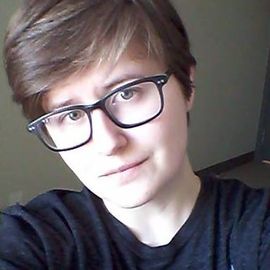The Ethical Complexity of Collaboration:
An SNS Roundtable Review – IABA Europe 2017
Ana Horvat
This year’s IABA Europe conference focused on the intersections of life writing and new media in European and global contexts. The conference featured diverse takes on new media including diaries and Instagram, the digital footprints as memoir, migrant subjectivity and smartphones, and digital biographies of literary figures. The issue of collaboration most prominently came up in several presentations on migration and refugee life narratives and this focus continued in the the Life Writing Graduate Student and New Scholar Network (SNS) roundtable on collaboration (see full list of the roundtable's abstracts and speaker bios here) which was chaired by Emma Maguire (Flinders University). Some of the issues raised were life after the PhD and the necessity of collaboration among young academics and more established professors, collaborative memoir-writing, negotiating translations of life stories, and collaborative making of refugee narratives.
The Necessity of Intra/Intergenerational Collaboration among Academics
Olga Michael (University of Central Lancashire), the author of the new blog series on life after the PhD
on the SNS website, talked about the challenges new scholars face in the field of life writing and in academia. Michael stressed the importance of talking about the difficulties of completing the PhD while knowing that employment in academia is uncertain and offered some strategies for tackling the issue. Since this is not an issue of just a few students and is a problem which does not seem to be going away, Michael noted the need for collaboration, sharing experiences, resources, and tips for navigating this often stressful period between the completion of the PhD and getting a full-time or tenure-track position at a university. Rather than repeating the need to work harder, get better at self-branding, and finding a mentor, Michael noted the importance of finding inspiration in our research in life writing with its focus on relationality and relationships between auto/biographers and auto/biographical subjects. Noting the power imbalance between new academics and more established professors, Michael also appealed to more established professors to not disregard their younger colleagues’ problems and join in the conversation about what could be done to maintain the dignity of being an academic. Michael’s comments reflect the (slow)growing trend of adjunct professors starting to organize and protest the conditions of low pay with few benefits and short-term contracts.
The Ethical Complexity of the Collective “I”
Ana Belen Martinez Garcia (King’s College London/University of Navarra) continued with the importance of collaboration in life writing and discussed her work with young female memoir writers for whom English is not their first language but who need to write in English in order to reach a wider audience and make more of an impact. The young North Korean defectors in Martinez Garcia’s research are adamant about learning English in order to have their voices as less mediated as possible; however, the ethical complexity of the many other behind-the-scenes participants to their narratives (co-writers, managers, human rights activists) needs to be acknowledged. The collective “I” that these narratives produce is also a merging of the authors’ stories with the stories of people still in the North Korean dictatorship because the authors’ goal is to create enough media attention around the issue of captivity to provide more aid for their compatriots. Martinez Garcia notes that while older North Korean defector memoirs were usually written by men, there are increasingly more memoirs written by girls and that digital media is playing a larger role in the proliferation of their stories, and that these memoirists tackle their audiences in necessarily different ways that the memoirists of past generations.
Creating Spaces of Equality in Human Rights work with Migrants
Taking up the praxis of collaboration in human rights activism, Elsa Lechner (University of Coimbra) spoke of her experiences of working with refugees and immigrants in Portugal and helping them tell their stories. The autobiographies produced in the Center for Social Studies in Coimbra are a two-way collaborative project between the refugees and immigrants and the volunteers and workers in the centre. The staff help the participants by holding workshops meant to stimulate the sharing of stories, by helping with the translation of the participants’ experiences into Portuguese and into a cohesive story, and by helping the participants process potentially traumatic experiences of migration. The participants help the staff by providing them with raw material for their research as well as by giving them information needed to contextualize migrant experiences in Portugal, which might lead to securing better aid for migrants in the future. Lechner also brings up the issue of power imbalance, or asymmetrical social relations, which Michael discussed in reference to academia and Martinez Garcia brought up in the ethical complexity of memoir-making collaborations. In working with migrants, Lechner notes the importance of creating a space of respect and equality but also acknowledging the limits of the collaborative program in which language, gender, religious, and cultural issue often interfere.

Ana Horvat is a PhD candidate in the English and Film Studies Department at the University of Alberta. Their research deals with trans life writing, queer theory, animacy, geography and sports. Their dissertation examines autobiographical representations of trans embodiments in performance and digital media. They have been published in a/b: Auto/Biography Studies.


